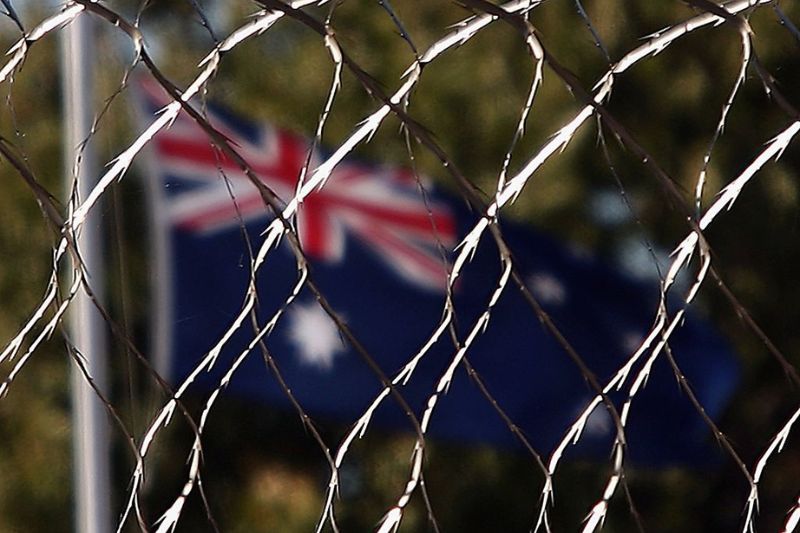It is always tempting to defend one group of people by comparing it favourably to another. Particularly if you use a pejorative phrase to describe the other. But it is ultimately unhelpful. A recent Guardian article reported that a 2020 Report’ on Immigration Detention Centres had contrasted asylum seekers with ‘prison hardened detainees’. In comment on the issue this description easily becomes abbreviated to ‘hardened criminals’ and extended to all people who have been released from jail but face removal from Australia.

I agree that former prisoners and people who seek protection should not be housed together, but I regret any generalised description of the former as ‘hardened criminals’. They are also human beings each with their own story, who like people seeking protection suffer in detention and have grounds to protest against their treatment. That becomes clear if we consider the regulations under which each group suffers.
The legal basis for detaining both groups is the requirement that all non-citizens in Australia must hold a valid visa. If they do not possess one or it is cancelled, they must be detained. Most asylum seekers now in Immigration Detention were formerly on Bridging Visa E that permits people to live in the Australian Community even though they have few resources to do so. Their progressively harsher treatment over many years is one embodiment of the doctrine of deterrence that uses the suffering of people who seek protection as a deterrence to others.
In addition, their visas are seen as a privilege and not as a right. They may be cancelled on character grounds, whereupon their holders are returned to detention. It is sufficient that they are charged with an offence before it is adjudicated or are considered a risk to the community. Given their poor mental or physical health arising from the trauma they suffered in their own nations and flight, and their difficulty of surviving in Australia, inevitably inevitable that some will act in a way that involves police intervention and charges for minor offences. They are then put into detention centres. They may appeal against the cancellation of their visa, but this is a lengthy process. As a result, they are likely to spend a long time in detention.
With the change in Government, the rhetoric and some aspects of practice are now oriented to keep people who seek protection out of detention than to place them in it. But the legislation remains.
The second group of people are people who face removal from Australia after imprisonment for committing crimes. These include the people described as ‘hardened criminals’. They comprise non-citizens whose visas have been cancelled and so are detained. Some will have come to Australia with their parents but have never taken out citizenship. They may neither speak the language nor have visited the nation to which they will be ‘returned’. Most will have family connections and perhaps children of their own in Australia.
'Persons in both groups are human beings and both are worthy of respect and compassion. For persons in each group deprivation of freedom without serious reason is necessarily punitive and corrosive of mental and physical health.'

The cancellation of visa and removal from Australia is mandatory for those who have been sentenced to more than twelve months in prison, but also may be imposed on people who are seen to be a threat to the health, safety or good order of the community. Over many years both the range of offenses that lead to removal from Australia and the range and length of sentences imposed for crimes have expanded, opening more people to the cancellation of their visa. The human reality of this system is that people who have paid their debt to society by serving their prison sentence will immediately have their visas cancelled and be taken by the Immigration authorities into detention preparatory to removal. Although they may then appeal against removal, they will spend a long time in detention awaiting the decision. The average time spent in detention is almost two years. Many feel bitterly the injustice of being imprisoned twice for the same offense. This resentment may influence their behaviour in detention.
Some people moved from prison to detention after the cancellation of their visas may justly be described as ‘hardened criminals’. In my experience as Chaplain to people in detention centres, however, I have met few. One man who, under a more liberal regime, was described as such by a prejudicial article in a tabloid, certainly had an intimidating demeanour. But I remember him for his conversation with a cocky young man who saw him as a role model. This ‘hardened criminal’ was gently trying to persuade the youth not to waste his time in detention but to read and study and prepare himself for life outside. Then and still now detention centres offer no programs for preparing people for life outside detention in Australia or after removal.
In a better world, people who seek protection in Australia and people removed from prison would not be detained in the same detention centres. But the grounds for differential treatment are not based on the difference between guilty and innocent people, between asylum seekers and hardened criminals. Persons in both groups are human beings and both are worthy of respect and compassion. For persons in each group deprivation of freedom without serious reason is necessarily punitive and corrosive of mental and physical health. Persons seeking protection who have been charged with minor misdemeanours should not have their visas cancelled. Neither should persons who have been imprisoned have their visas cancelled until their appeal against removal is decided and removal has been arranged. Detention should be reserved for people who have no connection with Australia and who await immediate removal.
Andrew Hamilton is consulting editor of Eureka Street, and writer at Jesuit Social Services.
Main image: An Australian flag behind razor wire at Bandyup Womens prison. (Paul Kane/Getty images)